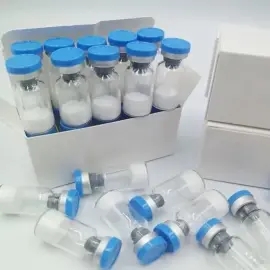-
Categories
-
Pharmaceutical Intermediates
-
Active Pharmaceutical Ingredients
-
Food Additives
- Industrial Coatings
- Agrochemicals
- Dyes and Pigments
- Surfactant
- Flavors and Fragrances
- Chemical Reagents
- Catalyst and Auxiliary
- Natural Products
- Inorganic Chemistry
-
Organic Chemistry
-
Biochemical Engineering
- Analytical Chemistry
- Cosmetic Ingredient
-
Pharmaceutical Intermediates
Promotion
ECHEMI Mall
Wholesale
Weekly Price
Exhibition
News
-
Trade Service
Merck andamp; Co) recently announced that the evaluation of the anti-PD-1 therapy Keytruda (Corintha, generic name: pembrolizumab, Pabliju monoantigen) combined chemotherapy (shunplatin-5-fluorouracine (5-FU)) first-line treatment of local late stage or metastatic esophageal cancer key phase III KEYNOTE-590 trial reached the total survival period (OS) and non-progressive survival (PFS) 2 major endpoints.
KEYNOTE-590 was a randomized, double-blind Phase III trial (NCT03189719) in which 749 patients with localized advanced or metastatic esophageal cancer (esophageal adenocarcinoma or squamous cell carcinoma or esophageal gastric junction Siewert Type 1 adenocarcinoma) were included.
, these patients were randomly assigned to receive Keytruda plus chemotherapy, placebo plus chemotherapy as first-line therapies.
end points of this study are OS and PFS, and secondary endpoints include total mitigation rate (ORR), mitigation duration (DOR), and security.
based on an interim analysis conducted by the Independent Data Monitoring Board, the Keytruda plus chemotherapy group OS and PFS showed statistical and clinical improvements in the intentional therapy (ITT) group compared to the placebo-and-chemotherapy group.
, the study reached a critical secondary endpoint: a significant improvement over the placebo-and-chemotherapy group, orR in the Keytruda-chemotherapy group.
the study, Keytruda's security is consistent with previous reports.
it's worth noting that Keytruda is the first anti-PD-1 therapy to treat esophageal cancer with combined chemotherapy, regardless of histology.
keyNOTE-590 results will be shared with regulators around the world and presented at the 2020 Virtual Meeting of the European Association of Oncology (ESMO).
currently, Keytruda has been approved in the United States and China as a single-drug therapy for patients with relapsed localized advanced or metastatic esophageal squamous cell carcinoma with tumor expression PD-L1 (combined positive score (CPS) of 10).
esophageal cancer (Photo: medindia.net) Mersadon is continuing to study Keytruda's therapeutic potential in multiple environments and stages of gastrointestinal cancer, including stomach cancer, liver and bile cancer, esophageal cancer, pancreatic cancer, colorectal cancer and cancer, through its extensive clinical program. "Esophageal cancer is a devastating malignancies with a high mortality rate and few treatment options other than chemotherapy," said Dr. Roy Baynes, Senior Vice President and Head of Global Clinical Development,
Mercer East Research Laboratory.
this critical study, Keytruda combined chemotherapy had a higher overall survival period than current standards of care for the entire study population and all assessed patient groups.
results build on our research and strengthen Keytruda's survival advantage, and we look forward to engaging with regulators as soon as possible.
" esophageal cancer is a particularly difficult cancer to treat, starting from the inner layer of the esophageal (mucous membrane) to grow outwards.
there are two main types of esophageal cancer: squamous cell carcinoma and adenocarcinoma.
, esophageal cancer is the seventh most commonly diagnosed cancer and the sixth most common cause of death.
estimates that in 2018, there will be more than 572,000 new cases of esophageal cancer worldwide and nearly 509,000 deaths.
the United States, 185,000 new cases of esophageal cancer will be diagnosed and 16,000 people will die from the disease by 2020.
, esophageal cancer is the fifth most common cancer and the fourth most common cause of death, with 90% of esophageal cancers being squamous cell carcinomas.
keytruda is a PD-(L)1 tumor immunotherapy that helps detect and fight tumor cells by improving the body's immune system.
Keytruda is an humanized monoclonal antibody that blocks the interaction between PD-1 and its mediators PD-L1 and PD-L2, activating T lymphocytes that may affect tumor cells and healthy cells.
To date, more than 10 PD-(L)1 oncology immunotherapy treatments have been approved worldwide, and Keytruda is a leader in this field, with more than 20 therapeutic adaptations approved, with global sales reaching $11.1 billion in 2019, up 58% from the previous year.
has the largest clinical development program in immuno-oncology in the industry, and more than 1,200 clinical trials are currently investigating Keytruda's role in multiple types of tumors and therapeutic backgrounds.
Keytruda Clinical Program aims to understand the role of the drug in cancer and the factors that may predict patients to benefit from Keytruda treatment, including exploring several different biomarkers.
.







